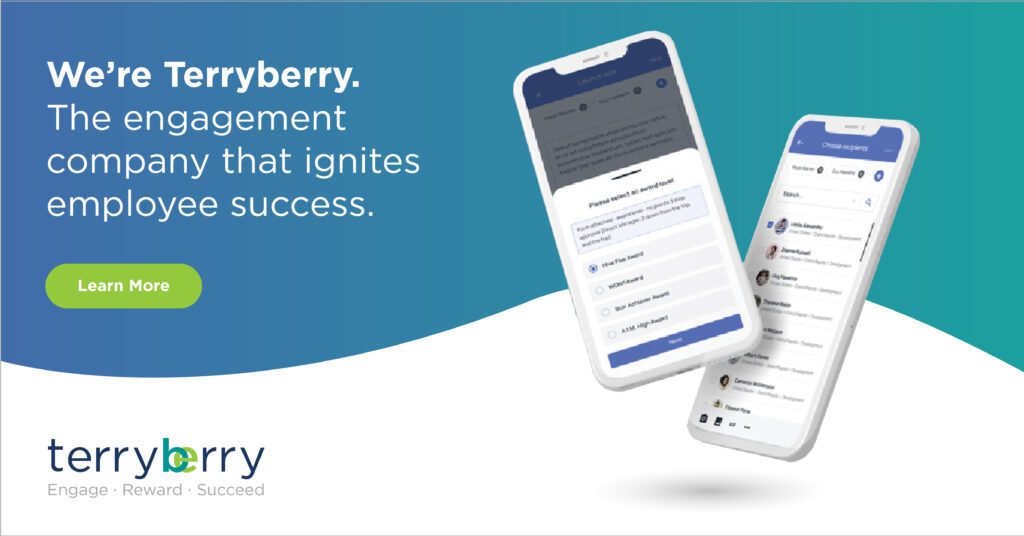January 4, 2024


February marks a significant period in the corporate calendar—Black History Month—a time to recognize and celebrate African Americans' rich history, achievements, and cultural contributions. Observing Black History Month at work isn't just a nod to inclusivity—it's an important part of building a respectful, aware, and cohesive work environment.
However, there's no one-size-fits-all approach to recognizing this observance month.
Your company's method and strategy will all depend upon your existing levels of employee engagement and awareness. While this article can't provide a personalized approach for your business, it gives you plenty of ideas for impactful ways to observe Black History Month at work in tasteful, respectful, and engaging forms.
Whether you're a small business owner, a leader in a large corporation, or part of a human resources team, this guide provides practical and creative ideas to observe Black History Month in your workplace.
From educational activities and supporting Black-owned businesses to leveraging Employee Resource Groups (ERGs) and integrating these observances into year-round initiatives, we'll cover a wide range of strategies to ensure your Black History Month observance is impactful and meaningful.
Origins and Evolution of Black History Month
Black History Month originated from "Negro History Week," an initiative started by historian Carter G. Woodson and the Association for the Study of Negro Life and History in 1926. Woodson (often referred to as the "Father of Black History") chose the second week of February for this observance to coincide with the birthdays of Abraham Lincoln and Frederick Douglass.
The week was designed to encourage the coordinated teaching of the history of American Blacks in the nation's public schools.
The civil rights movement of the 1960s brought a growing awareness of the significance and richness of African American history. This led to an increasing call for a more comprehensive observance, and by 1976, President Gerald Ford gave Black History Month official recognition.
"We can seize the opportunity to honor the too-often neglected accomplishments of black Americans in every area of endeavor throughout our history. I urge my fellow citizens to join me in tribute to Black History Month and the message of courage and perseverance it brings to all of us." — President Gerald R. Ford.
Black History Month offers an opportunity for businesses to acknowledge the too-often neglected accomplishments and struggles of African Americans. It's a time to reflect on the past, consider the present, and look toward a future where diversity and inclusion evolve beyond buzzwords into integral parts of company culture.
RELATED: DEI Initiatives: What They Are, Examples, & Tips for Implementing


Should You Celebrate Black History Month at Work?
Whether or not a business should celebrate Black History Month at work is a complex issue with no universal answers. However, there are several factors to consider when making this decision:
Potential benefits:
- Increased Awareness and Understanding: Celebrating Black History Month can be an opportunity to educate employees about the history and contributions of Black people, both in the workplace and in society as a whole. This can help to foster a more inclusive and respectful work environment.
- Improved Employee Morale and Engagement: When employees feel seen and valued, it can boost their morale and engagement. Celebrating Black History Month can be a way to show Black employees that their contributions are appreciated and that their history is important.
- Strengthening Community Relationships: Businesses actively celebrating diversity can build stronger relationships with the communities they serve. This can be beneficial for both the business and the community.
RELATED: How to Improve Employee Engagement: Strategies for Boosting Morale
Potential challenges:
- Tokenism: If not done thoughtfully, celebrating Black History Month can feel like tokenism. It's important to ensure that any celebrations are genuine and meaningful and not just performative gestures.
- Appropriation: Be sensitive to the concerns of Black employees when planning celebrations. Ensure that any activities are respectful and appropriate and that Black voices are heard in the planning process.
- Lack of Inclusivity: If not done correctly, celebrations of Black History Month can exclude other minority groups. It's essential to make sure that any celebrations are inclusive of all employees.
Ultimately, the decision to celebrate Black History Month should align with your company's values and DEI goals. If your business is committed to fostering an inclusive environment, observing Black History Month can be a meaningful part of that commitment.
However, the observance must be part of a broader, ongoing effort to address diversity and inclusion rather than a once-a-year event.


42+ Ways to Recognize Black History Month at Work
Only you, leadership, HR, and your ERGs know what will work best at your business. This list below is just meant to get your creative juices flowing. You might find Black History Month ideas that perfectly fit your business's needs, while others might be far off.
Use this as a starting point to kickstart the conversations and find the right ideas for your employees.
1. Host Guest Speakers
Invite influential Black leaders, activists, or scholars to speak at your workplace. These can be in-person events or virtual webinars. Guest speakers can provide valuable insights and perspectives on Black history, culture, and current issues.
This fosters a deeper understanding and appreciation among employees, enhancing cultural awareness and promoting diversity in the workplace.
2. Organize Educational Workshops
Conduct workshops that focus on various aspects of African American history and culture. Topics can range from historical events to current social issues.
Educational workshops help in raising awareness and knowledge among employees. They serve as a platform for learning and discussion, contributing to a more informed and inclusive workplace environment.
3. Support Black-Owned Businesses
Encourage employees to patronize Black-owned businesses. This can include catering from Black-owned restaurants for company events or purchasing supplies from Black-owned vendors.
Supporting Black-owned businesses helps foster economic growth within the Black community and demonstrates your company's commitment to social responsibility and racial equity.
4. Feature Black Artists and Musicians
Showcase the work of Black artists and musicians in the workplace. You could do this through art exhibitions, music playlists, or live performances. Recognizing this diverse talent enriches the workplace culture and allows employees to engage with diverse forms of artistic expression.
5. Start a Book or Film Club
Create a book club or film club focused on works by Black authors or filmmakers. Organize regular discussions and screenings for employees to participate in.
These opportunities provide a space for employees to engage with and reflect on stories and experiences different from their own, fostering a work culture of learning and inclusivity.


6. Spotlight Employees
Feature Black employees in your organization through internal newsletters, social media, or special events, highlighting their achievements and contributions. This boosts morale and reinforces the value of diversity and inclusion in the workplace.
7. Have a Potluck or Catered Events
Food is a universal language that brings people together. Organize a potluck or catered event featuring African or African American cuisines. These events offer a tasty, approachable way to learn about and appreciate different cultures.
8. Arrange Panel Discussions
Host panel discussions on topics relevant to Black history, culture, or current social issues, featuring diverse voices from within and outside the organization.
Panel discussions provide a platform for open dialogue and diverse perspectives. They encourage learning, understanding, and empathy—and they can spark meaningful conversations about race, diversity, and inclusion.


9. Volunteer for Racial Justice Causes
Organize group volunteer opportunities with organizations that work towards racial justice and equality. Encourage employee participation in community service projects.
Your service for racial justice causes contributes positively to the community and allows employees to engage with and understand critical social issues in local areas.
10. Set Up Posters and Displays
Create educational displays or workplace posters highlighting significant events and figures in Black history. They are a constant source of learning and inspire pride and respect for cultural diversity.
11. Publish a Black History Month Newsletter
Create and distribute a special newsletter focusing on Black History Month. Include articles, interviews, and profiles related to Black history, culture, and current events.
12. Celebrate on Social Media
Use your company's social media platforms to share information, stories, and achievements related to Black History Month. Feature posts about Black history, culture, and employees' contributions.


13. Offer Training Sessions
Provide training sessions on topics such as unconscious bias, cultural competency, and the history of racial justice. Internal leaders or external experts can lead these.
14. Make a Corporate Donation
Corporate donations demonstrate a tangible commitment to supporting racial justice and the Black community. Donate to organizations or causes that support the Black community or work towards racial justice. Involve employees in selecting the organizations too so you're sure to pick one that resonates with your team.
15. Collaborate with Black ERGs
Collaborating with Black ERGs ensures that activities are authentic and meaningful. It empowers Black employees to lead the way in celebrating their culture and history.
Partner with Black ERGs in your organization to plan and execute Black History Month activities. Use their insights and leadership in organizing events and initiatives.


16. Hold Lunch and Learn Sessions
Organize informal "Lunch and Learn" sessions led by knowledgeable speakers or employees where employees can gather to discuss topics related to Black history, culture, or current social issues.
These sessions provide a relaxed setting for learning and discussion, making education about Black history accessible and engaging. They encourage open dialogue and foster a deeper understanding of diverse perspectives within the workforce.
17. Start a Poetry Night
Poetry is a powerful medium for expression and reflection. A poetry night celebrates Black literary contributions and offers a platform for creative expression.
Host a poetry night where employees can share or listen to poetry by Black poets or present their own works inspired by Black history and culture.
18. Virtual or In-Person Tours
Arrange tours of museums, historical sites, or cultural exhibitions that focus on Black history and culture. These can be in-person visits or virtual tours for remote teams.
Tours provide an immersive educational experience, allowing employees to visually and interactively engage with Black history. They offer a unique opportunity to learn about significant historical events and figures outside the traditional workplace setting.


19. Adopt-a-School Program
Adopting a school fosters community engagement and supports educational opportunities for Black youth. It's a way for companies to make a long-term impact, promoting educational equity and supporting the next generation.
Partner with local schools in predominantly Black communities. Programs can include mentoring, tutoring, or donations of books and resources.
20. Conduct a Diversity Audit
A diversity audit helps identify areas where the company can improve regarding diversity and inclusion.
Review your company's policies, practices, and culture to assess diversity and inclusivity. This can involve surveys, interviews, and analysis of workplace demographics and practices.
21. Gather Anonymous Feedback
Anonymous feedback allows employees to share honest opinions and suggestions without fear of repercussions. Implement a system for employees to provide anonymous feedback on your company's diversity and inclusion initiatives, including Black History Month activities.
We can help. Use Terryberry's employee engagement surveys for:
- Engagement surveys
- Pulse surveys
- Experience surveys
- 360 feedback


22. Host a Dance Workshop
Organize a dance workshop featuring styles from the African diaspora, led by a skilled instructor.
Dance workshops offer a fun, interactive experience that fosters team bonding and cultural appreciation. They provide a unique opportunity for employees to connect with Black history and traditions energetically and memorably.
23. Design an Escape Room
Create an escape room experience themed around significant events or figures in Black history. This can be a physical setup or a virtual experience for remote teams.
A Black History-inspired escape room engages employees in problem-solving while immersing them in historical scenarios, enhancing their understanding and appreciation of Black history.
24. Build an Interactive Mural
Building a mural is a collaborative and creative way to engage employees. It results in a lasting visual tribute to Black history and culture in the workplace, serving as a daily reminder of the company's commitment to diversity and inclusion.
Collaborate on creating a large-scale mural within your workplace that reflects themes of Black history, culture, and achievements. This can be a physical mural or a digital project for remote participation.
25. Host a Book Drive
Organize a book drive to collect literature by Black authors or about Black history and culture. Donate these books to local schools, libraries, or community centers.


26. Create a Black History Month Playlist
Music is a universal language that can educate and unite. A carefully curated playlist can celebrate the contributions of Black musicians, promote a greater appreciation for Black culture, and create an inclusive atmosphere in the workplace.
Compile a playlist featuring songs by Black artists across various genres and eras. Share this playlist in the office or through company channels for employees to enjoy.
27. Encourage Personal Commitments to Anti-Racism
Personal commitments to anti-racism encourage active participation in creating a more inclusive and equitable society. This initiative empowers employees to contribute to meaningful change within and outside the workplace.
Initiate a campaign where employees pledge to take specific actions towards being anti-racist, such as educating themselves, speaking out against racism, or supporting Black communities.
28. Create a Black Innovators Gallery
Set up a gallery or digital showcase in the workplace highlighting Black innovators and their contributions to various fields, including science, technology, arts, and social movements.
29. Amplify Black Voices in Meetings
Make a conscious effort to amplify Black voices during meetings and discussions, ensuring they are heard and valued. This can include spotlighting Black employees' achievements or inviting them to lead specific discussions.
Amplifying Black voices in meetings promotes inclusivity and ensures diverse perspectives are considered. It demonstrates the company's commitment to equity and can lead to more informed and well-rounded decision-making.


30. Organize an Employee Talent Showcase
Organize an event where Black employees can showcase their talents, like singing, dancing, comedy, or visual arts, providing a platform for self-expression and celebrating cultural diversity.
31. Launch a Social Justice Documentary Series
Host a lunchtime documentary series highlighting contemporary social justice issues affecting Black communities and sparking open conversations.
32. Start a Mentorship Program
Connect Black employees with senior mentors from diverse backgrounds through a structured program, fostering career development and guidance.
33. Grow a Garden
Partner with a local urban agriculture project or community garden led by Black organizations, contributing to food security and environmental action.
34. Collaborate on an "Unsung Heroes" Project
Encourage employees to research and share stories of lesser-known Black figures who made significant contributions, celebrating hidden histories.


35. Hold a Black Entrepreneurs Event
Invite Black entrepreneurs from the community to showcase their businesses, offering a platform for networking and supporting local economic development.
36. Initiate a Black-Owned Business Crawl
Organize an after-work event where employees visit and patronize several local Black-owned businesses, experiencing diverse offerings and promoting economic support.
37. Collect a Black History Podcast List
Create a playlist or recommendation list featuring podcasts hosted by Black voices or exploring Black themes.
38. Launch a Board Game Design Challenge
Challenge teams to design their own board game promoting diversity and inclusion concepts, sparking creative thinking and critical discussions.
39. Host a Black Heritage Cooking Class
Partner with a Black chef or culinary expert to host a cooking class featuring traditional or modern dishes from diverse Black cultures, fostering cultural exchange and connection.
40. Plan a Field Trip
Plan a group visit to a local historical site or museum dedicated to Black history, offering employees a firsthand learning experience and connection to the past.
41. Compile an Audio Project
Encourage employees to record short audio stories (one minute max) sharing their personal experiences with race, bias, or overcoming adversity. Compile the recordings into a company-wide podcast or audio installation, creating a robust and diverse narrative.
42. Host a Black Futures Design Challenge
Have teams envision and model solutions to current issues affecting Black communities, like gentrification, educational disparities, or healthcare access. Then, showcase the proposals and foster dialogue about potential solutions.


Best Practices for Observing Black History Month at Work
Celebrating Black History Month in the workplace requires thoughtful planning and execution. It's not something you want to rush into or plan last minute.
Here are some best practices to ensure your observance is meaningful, respectful, and impactful.
- Engage Your ERGs: Leverage ERGS focused on Black employees or diversity. They can provide valuable insights, lead initiatives, and ensure activities resonate authentically with the workforce.
- Involve Diverse Voices: Include employees from various backgrounds in planning and executing Black History Month activities. This inclusivity ensures a range of perspectives and fosters a more comprehensive understanding of Black history and culture.
- Avoid Tokenism: Ensure activities go beyond mere symbolic gestures. Aim for substantive, educational, and engaging programs that genuinely honor Black history and contribute to ongoing conversations about race and diversity.
- Respect Cultural Sensitivities: Be mindful and respectful of the cultural significance of Black History Month. Celebrate in a way that honors its true spirit and avoids cultural appropriation or oversimplification.
- Encourage Participation: Promote broad participation across the entire organization. Encourage all employees (regardless of background) to engage in in-person and remote activities to build a more inclusive environment and broaden the educational impact.
- Integrate with Broader Efforts: Ensure Black History Month activities are part of a larger diversity and inclusion strategy. This approach underscores the company's commitment to diversity beyond just one month of the year.
- Measure and Report Impact: Benchmark the effectiveness of Black History Month activities and gather employee feedback. Use this data to refine future observances and report progress in meeting diversity and inclusion goals.


How to Incorporate Black History into Year-Round Initiatives
While Black History Month only comes around once a year, your observance shouldn't be confined to a single month. Integrating Black history into your regular diversity and inclusion efforts shows your commitment to making it a part of your organization's everyday fabric.
Here are some ideas for how to incorporate Black History Month into year-round recognition:
- Continuous Learning: Incorporate Black history and culture into ongoing educational programs. This can include speaker series, workshops, and training sessions that extend beyond February.
- Ongoing Support for Black Communities: Continuously engage with and support Black communities and causes. This can involve partnerships with local organizations, community service projects, and sustained support for Black-owned businesses.
- Diversity in Hiring and Promotion: Implement and maintain inclusive hiring practices. Aim for diversity in leadership positions and across all levels of the organization.
- Important Date Recognition: Acknowledge and celebrate significant dates in Black history beyond February, such as Juneteenth, Martin Luther King Jr. Day, and significant anniversaries of historical events.
- Volunteer Opportunities: Offer and promote volunteer opportunities that allow employees to contribute to causes that support the Black community.


Honor Black History Month at Work the Right Way
Observing Black History Month at work is a meaningful way to honor the rich history and contributions of African Americans. It's an opportunity to educate, engage, and foster a more inclusive and diverse workplace culture. However, celebrating it the right way requires thoughtful planning, genuine commitment, and the tools to ensure lasting impact.
That's where we can help.
Terryberry's comprehensive suite of solutions enhances your Black History Month observance and diversity initiatives throughout the year. With tools like engagement surveys, recognition software, and peer recognition platforms, Terryberry provides everything you need to create a more inclusive environment.
- Engagement Surveys: Use Terryberry's surveys to gather employee feedback on your Black History Month activities and broader diversity efforts. This data can guide your planning and help tailor initiatives to meet the needs and interests of your workforce.
- Employee Recognition Software: Terryberry's recognition software makes it easy to celebrate the achievements and contributions of Black employees not just in February but also year-round. It provides a platform for acknowledging and appreciating the diverse talents within your organization.
- Social Recognition Software: Encourage a culture of peer recognition where employees can celebrate each other's contributions and learn from diverse perspectives.
Make this year's observance more than just a month-long event—make it a stepping stone towards a more inclusive and engaged workplace culture.
Schedule a demo with Terryberry today and discover how our solutions can transform your approach to celebrating Black History Month and enhancing your overall diversity and inclusion strategy.


